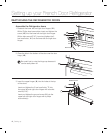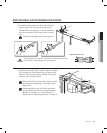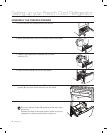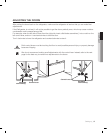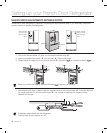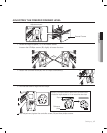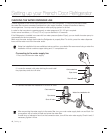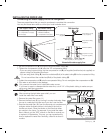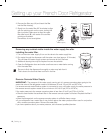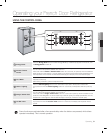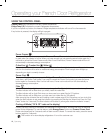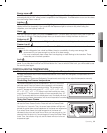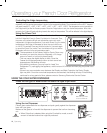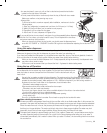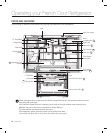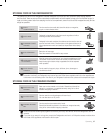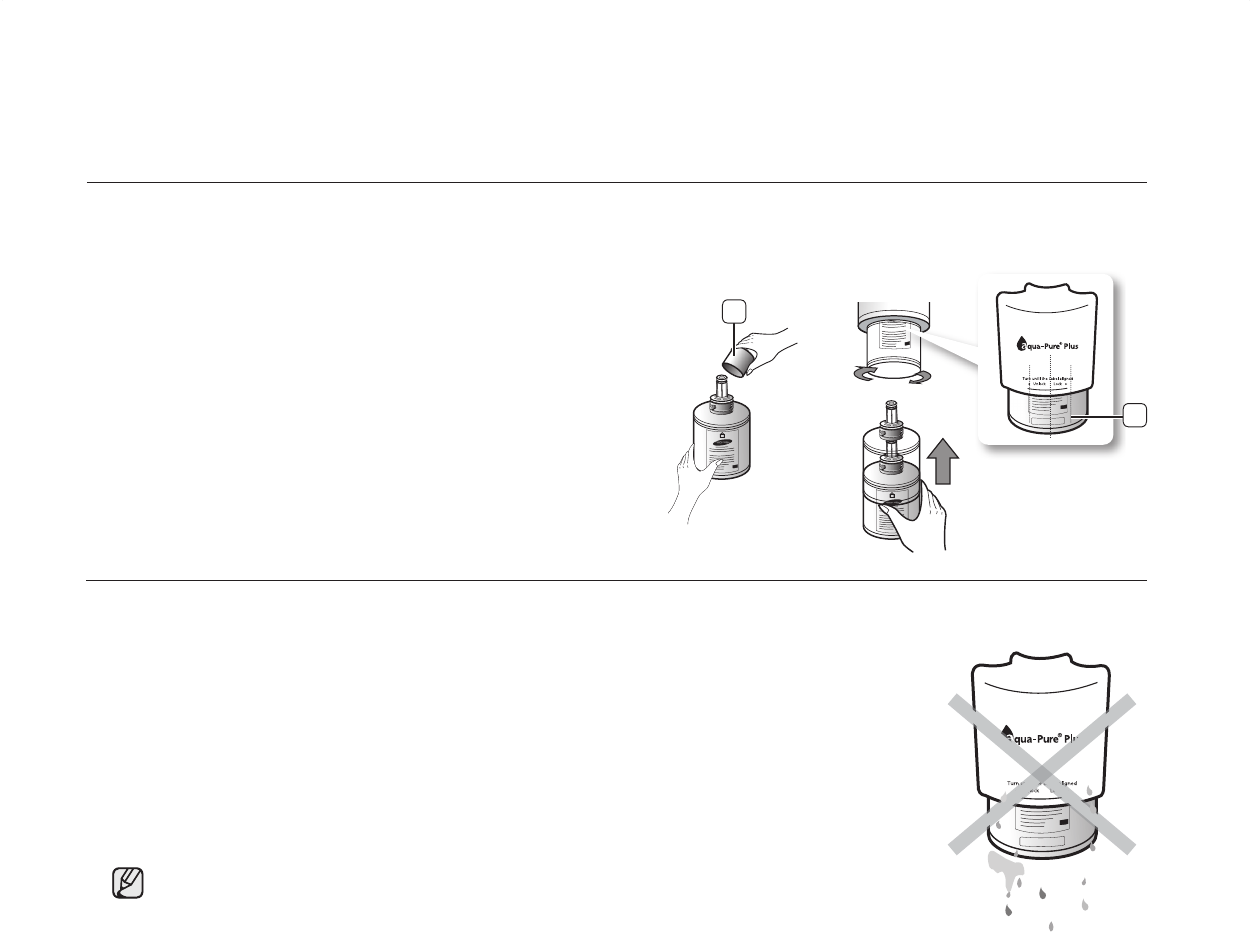
20_ Setting up
Setting up your French Door Refrigerator
4. Remove the filter cap ( 4 ) and insert the filter
into the filter housing.
5. Slowly turn the water lter 90º clockwise to align
with the printing mark on the cover, locking the
filter in position. Make sure to align the water
filter label mark ( 5 ) with center of cover filter
printing as illustrated.
Remember, do not over-tighten.
Turn until the label
is aligned.
Separation
of filter cap(red)
Cover filter.
4
5
1. Turn on the main water supply & turn on the valve to the water supply line.
2. Run water through the dispenser until the water runs clear (approx. 6-7minutes).
This will clean the water supply system and remove air from the lines.
3. Additional clearing time may be required in some households.
4. Open the Refrigerator door and make sure there are no water leaks coming
from the water filter.
The pressure of the water supply coming out of a reverse osmosis system going to the
water inlet valve of the refrigerator needs to be between 35 and 120 psi (241 and 827 kPa).
If a reverse osmosis water filtration system is connected to your cold water supply, the water pressure to
the reverse osmosis system needs to be a minimum of 40 to 60 psi (276 to 414 kPa.)
If the water pressure to the reverse osmosis system is less than 40 to 60 psi (276 to 414 kPa):
• Check to see whether the sediment lter in the reverse osmosis system is blocked. Replace the lter if
necessary.
• Allow the storage tank on the reverse osmosis system to rell after heavy usage.
• If your refrigerator has a water lter, it may further reduce the water pressure when used in conjunction
with a reverse osmosis system. Remove the water filter.
If you have questions about your water pressure, call a licensed, qualified plumber.
Be sure to flush the dispenser thoroughly or water may leak from it.
This is due to the fact that there is still air in the line.



